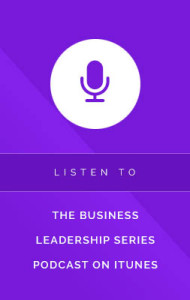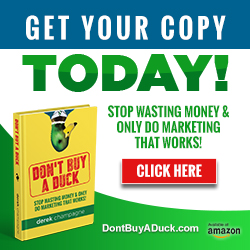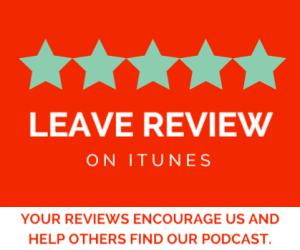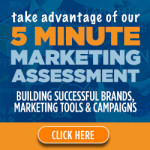BLS Interview with Devin Thorpe, Part 1
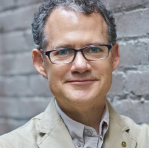
Derek Champagne, Founder and CEO of The Artist Evolution, interviews Devin Thorpe. As a new-media journalist and founder of the Your Mark on the World Center, Devin has established himself as a champion of social good. Devin was formerly the CFO of one of the top 3 Fortune 500 companies in 2009 before shifting his attention to social entrepreneurship. Read the interview below and listen to the podcast here.
Derek: I am very excited about our guest today. Devin Thorpe. He is founder of Your Mark on the World Center and is also a journalist. A very successful journalist with Forbes magazine and covers social entrepreneurialism.
Devin thank you for being our guest today.
Devin: Well it is an honor to be here Derek thanks for having me. I really appreciate it.
Derek: You have got an amazing podcast as well. You interview CEOs and billionaires and celebrities and have been all over the world covering all kinds of topics.
Tell me a little bit about Tony Robbins endorsement.
Devin: Well Tony was just such a nice guy. I was so impressed. Let me put it more personal than that.
I tend to be kind of a jerk.
Derek: [laughs]
Devin: It is really one of those things that I have been struggling to overcome for only about 25 years. My natural tendency to just not be the kind of person I really should be.
I am always impressed when I encounter people like Tony who are exactly the kind gentle person that you would want and expect them to be.
So you look at Tony Robbins’ persona and he is upbeat and he is positive and you think maybe he is not really like that in real life.
But in my interaction with him— we were off air and it was just the two of us—he could have treated me any way he wanted to; he was exceptionally gracious.
So we did an episode of my show and as I was going through my little wrap up he said, “Devin I just want to stop you right there. I want to acknowledge you. I see what a spotlight you have put on social entrepreneurs and people who are trying to do something for society. We need more of that”.
He said the kind of news that is normally out that is designed to startle. You are putting out some news that is designed to inspire.
I just thought it was really classy of him to take a minute to say something nice of me when he didn’t need to.
The show was about him and he is a huge star and he stopped to praise me a little bit. Wow, I thought that was just really classy.
I had Steve Young on my show last year as well and he was the same way in that he was just so gracious and kind and patient and I was just blown away.
It really was a reminder of both those cases that I need to continue the quest to stop being a jerk because the people I admire most are not jerks.
Derek: Well I appreciate your brutal honesty but I think that the testimonials of guys like that is a testament to some of the great work you are doing.
Devin you have got a very impressive resume. You have got an MBA from Cornell University. You founded and registered an investment bank. You were the CFO of the third largest company on INC 500 list in 2009.
How did you go from doing that to what you are doing now? Tell me about your transformation.
Devin: It goes back to an experience I had when I was 11. I was just a kid and there was a dam.
I live here in Salt Lake City, Utah, in northern Utah. There was a dam in southern Idaho that burst, really the first time it was ever filled.
It nearly wiped out the town of Rexburg, Idaho. A town which you probably haven’t heard of but Rexburg is only about a four-hour drive, four or five hours from Salt Lake City.
People from communities all around the west loaded up on buses that summer to go help the people of Rexburg dig the muck and mud out of their basements.
One day my dad came to me and said would you like to go and I said sure digging muck and mud out of a basement sounds fine.
Derek: [laughs]
Devin: I was right. Perfect day smocking muck. We went up, we left at two o’clock in the morning. Loaded the buses, got there at dawn, worked all day until dark. Got back on the buses and came home.
In retrospect I probably didn’t actually do any good. I was so small, so young I am sure I pooped out before I actually made any sort of a difference.
I remember feeling like I had made a real difference. It was an odd sensation for me but I remember coming home and feeling like I sort of vowed about it, I would never miss an opportunity to serve.
It turns out I had a normal ordinary career like everyone else and I didn’t make that the first thing in my life.
I always kind of regretted it and for a long time I had planned that in my mid-forties I would shift gears and go do something that had more impact.
Something that had more public service to it. That is kind of an old fashioned approach right.
Make money and then do good.
Derek: Right.
Devin: I don’t advocate that so much anymore. Even though that is what I did I think that millennials have a better model for it and they try to do good throughout their careers.
In any case I have had the successful career. I had run the investment banking firm and that was an exciting time.
I was working as the CFO of this big company and it was fun to see the company listed on the INC 500 list.
It was the 18th fastest growing and the third largest company on the list. It was really-
Derek: Wow.
Devin: -An exciting time of my career.
But one afternoon the CEO called me into his office and explained to me that I wasn’t really needed anymore. [laughs]
Derek: Wow.
Devin: And he was very kind and gracious about it but the company gave me a great severance package and it was just at a perfect time in my life when I had always said, “Okay I will go do something that has more impact and I will start a new career”.
I took the severance, they were very generous to provide and I launched the new career.
There is still progress to be made but I am sure having fun. I am doing what I love and I do believe that in some small way I make a difference every day.
For instance, I did a story last week about a venture capital program that was launched by a venture capital firm that actually mentor venture capitalist or would be venture capitalists around the world and the developing world.
I had someone reach out to me just today and say, “Thank you for doing that story. I have now connected to these guys and I am going to get into their program to be mentored so that I can become a venture capitalist here.” I think he was in India or Pakistan.
It is little things like that where I find out that something I did made a difference in someone’s life.
It makes me feel good that there is some way I can leverage my time to benefit a lot of people.
Derek: Tell me about making a difference and making a mark in the different roles that we are in in our different industries and niches.
Devin: I remember a great discussion I had with really one of the most impressive social entrepreneurs that I have interviewed.
We were talking about how he rescues children from sex slavery. He literally, he is former[ly] with the FBI. I think it was with the FBI.
He takes all that training. He assembles volunteer teams. I mean these are armed guys and they work with the local government and they go in and they do raids.
What they usually do is they’ll go into a community where there is sex trafficking going on and they will instead of showing up with money they show up with guns and they arrest the bad guys and take the girls and boys that they were trafficking and they liberate them and get them into programs to help them recover.
They just know no other way and they feel worthless outside of that community so it is really important to get them into programs to help them.
In that context he was talking about we all have to do what we can do. We need to do the thing that we can do and I know how to do this. So that is what I am doing. But other people have different skills and we need to do what we can do to help.
I thought that was really a powerful message.
Derek: Wow.
Devin: For me it validated what I do. Instead of making me feel guilty for not doing what he does, it validated well, yes, I do a thing but it’s a thing and it helps and I will keep doing my thing and I hope he will keep doing his.
And that guy – he has. He has kept doing it –in fact he went on a raid just last week.
Derek: So I am looking at the mission on www.yourmarkontheworld.com and the mission on your mark of the world center is to solve the world’s biggest problems before 2045 by identifying and championing the work of experts who have created credible plans and programs to end them once and for all.
That is a lofty goal. Tell me about this vision and how you are going to help solve those big problems.
Devin: It comes from looking closely. I have done a lot of research around the eradication of polio. Most Americans think that polio is eradicated and that we are not vaccinating our children for polio anymore.
But that is not true. Polio is still endemic in Pakistan and Afghanistan and in fact I will be going to Pakistan in May to do a story about this.
Until we eradicate the disease from the earth every child born on the planet needs to be vaccinated against polio. It is a tremendous expense; it is a huge global to expense to immunize all of those children every year.
Until we have done it there is always the risk that there could be a new epidemic of polio and so the World Health Organization Rotary Unicef CDC the Gates Foundation and governments around the world are spending billions of dollars to eradicate polio.
This is a battle that really started in earnest. The vaccines been around for about 60 years. But only about 30 years ago when Rotary said, “We think we could give everyone the vaccine and then no one would get polio anymore. Wouldn’t that be a good idea?” it seemed much easier than it turned out to be.
But nonetheless 30 years later it is virtually complete. There were 74 cases of polio last year.
Derek: Wow.
Devin: Compared to 400,000 cases 30 years ago.
Derek: Wow.
Devin: We have made huge, huge progress and so it literally appears that we will see the suspension of transmission of wild polio virus within the next 90 days.
That is where in history we are on what is one of the most historic events ever.
This is only the second disease ever in the history of mankind to be eradicated. The first was smallpox.
Smallpox was relatively easy because when you got smallpox you could see it and everybody knew you had smallpox.
With polio about one in 200 people who get polio get paralyzed. The others just pass it along to their friends.
It is very difficult to keep track of all the cases, very difficult to treat it.
It is really a much more difficult project than eradicating smallpox.
So it is exciting to see where we are in history.
That I think gives us a model for how we can solve really tough problems. The great thing is we have so much more technology so much more money available to us. The global economy is so much bigger and stronger than it was 30 years ago-
Derek: That’s right.
Devin: -That when we look at the scale of problems relative to resources it now seems so much more doable even to tackle bigger problems.
I get very excited and think we really can make tremendous progress against big problems.
Whether we are talking about eradicating poverty, suspending global warming or curing cancer.
Whatever it is we are going to make huge progress over the next 30 years. If we choose to.
I think we can and should choose to.
Derek: [crosstalk]
Devin: So that’s what I’m about. Your mark on the world center.
Derek: So tell me about some of the other big problems and what your mark on the world does to address those.
Devin: Our model is to use journalism and my show to advance those causes by talking to the people that are actually in the trenches doing the things that make a difference and to bring attention to their work.
I hope that others will bring support to it. Occasionally I have an opportunity to volunteer and be a part of the team.
Last year I went to Nepal and installed cook stoves in a rural village up in the Himalayas. It was a wonderful experience.
It was tragic but a month later most of those homes were destroyed by an earthquake. It is a wonderful part of what I do that I occasionally get to immunize a child or install a cook stove or some other volunteer activities that it keeps me grounded.
